Brexit break-up custody battle focuses on border
- Published
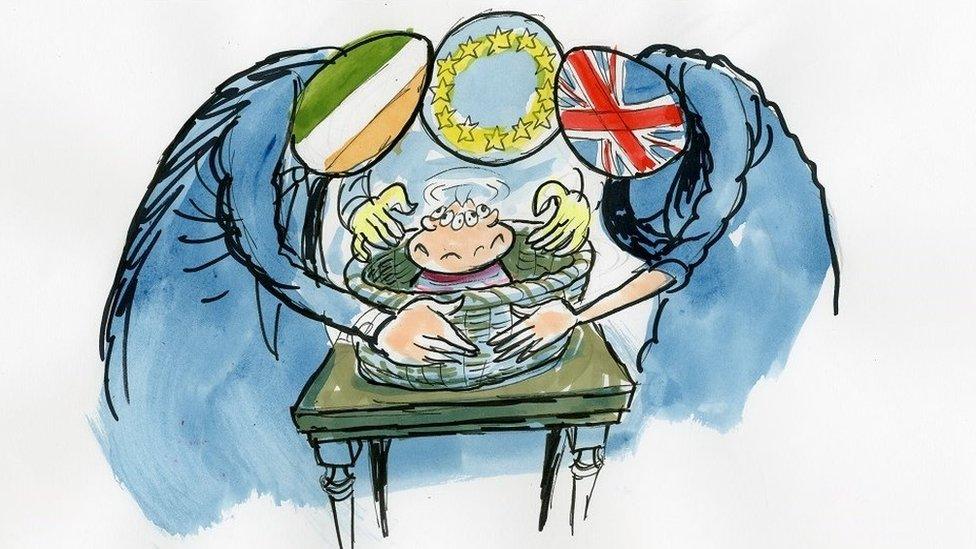
The border between Northern Ireland and the Republic is increasingly the focus of a political "custody battle" as part of the Brexit divorce negotiations.
But while the focus is on the divorce settlement, the emotional fallout can be trickier to navigate.
"Progress was being made in terms of building a slightly more shared identity in society," Matthew O'Toole told BBC Spotlight.
But, he added, the Brexit vote had "kind of forced people back".
The former Downing Street press adviser for David Cameron and Theresa May said Brexit has magnified identity politics in Northern Ireland.
"In many ways we are still kind of fighting the battles of the 17th century Williamite War in Northern Ireland - obviously every summer people march to commemorate those wars and then other people are offended by it and don't like it.
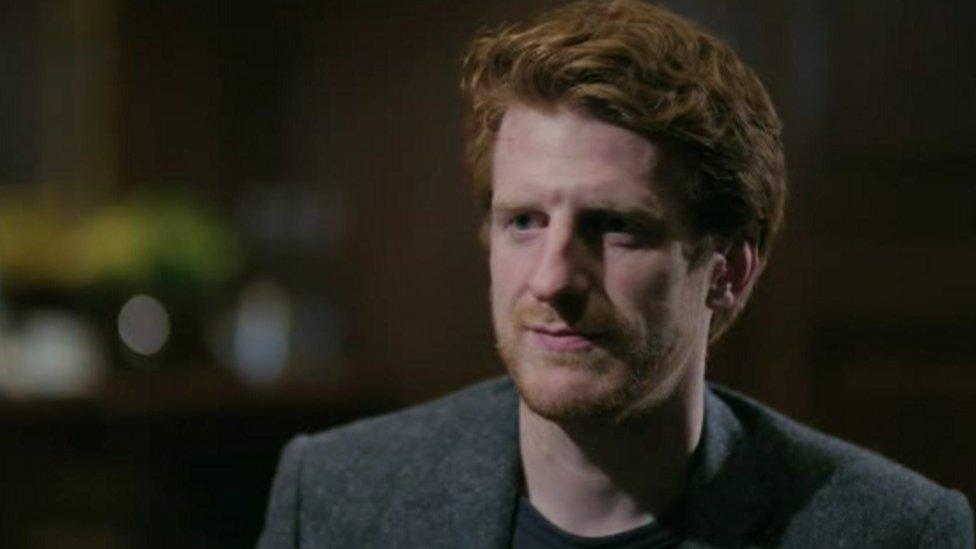
Former Downing Street press advisor Matthew O'Toole said Brexit magnified identity politics in NI
"So that European battle never went away in Northern Ireland and, now, we are at the centre of another sort of question, another European battle about the status of Northern Ireland and the whole island."
Just as divorcing couples can return to their own families during the process, it seems Brexit has crystallised the issue of identity in Northern Ireland.
Historian and political commentator Brian Feeney was among a group of "civic nationalists" who recently met with Taoiseach (Irish prime minister) Leo Varadkar in Dublin to raise their concerns that Brexit could leave them, as they see it, abandoned.
"Last summer, Northern nationalists turned their back on Westminster," he said.
"It's quite significant because they have no faith whatsoever in this British government and, indeed, in British governments since 2010."
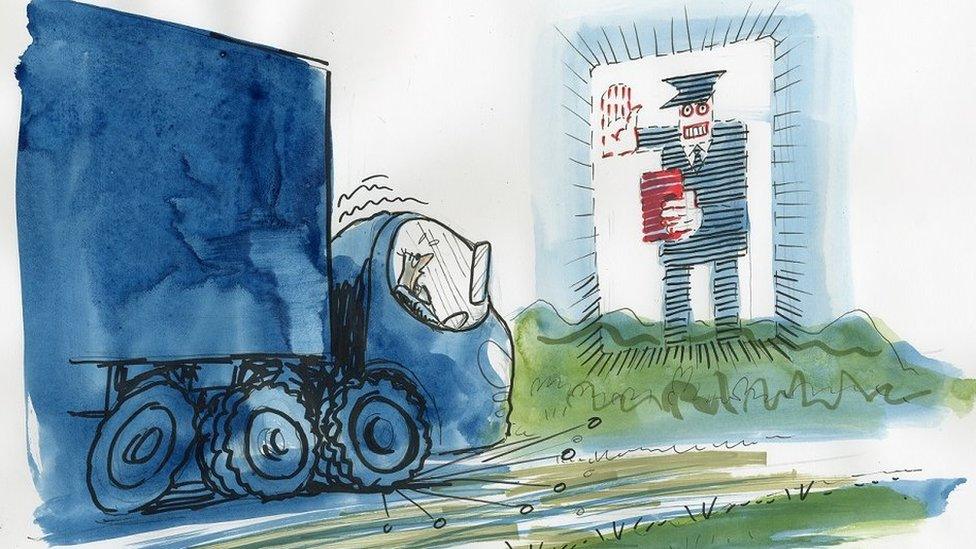
Former Ireland rugby international, Trevor Ringland, is among a group of "civic unionists" who responded and issued what they described as a "positive challenge to Northern Nationalists".
"Through rugby, I was able to experience good relations, great friends across the island, a tricolour that included me, a Soldier's Song that included me - but it wasn't the same tricolour and it wasn't the same Soldier's Song that was wrapped around members of the IRA," he said.
"It has always amazed me that on this island we never managed to create an identity for Irish that includes those of us who are British."
The "civic unionist" group said it wants to challenge assumptions that unionists are passive or opposed to equality and rights.
"My concern is that, at this moment in time, nationalism and republicanism have given up on power sharing in Northern Ireland and they are going down a very narrow rhetoric.
"As I said to a member of Sinn Féin, you have pushed the hate button again and you shouldn't have done that.
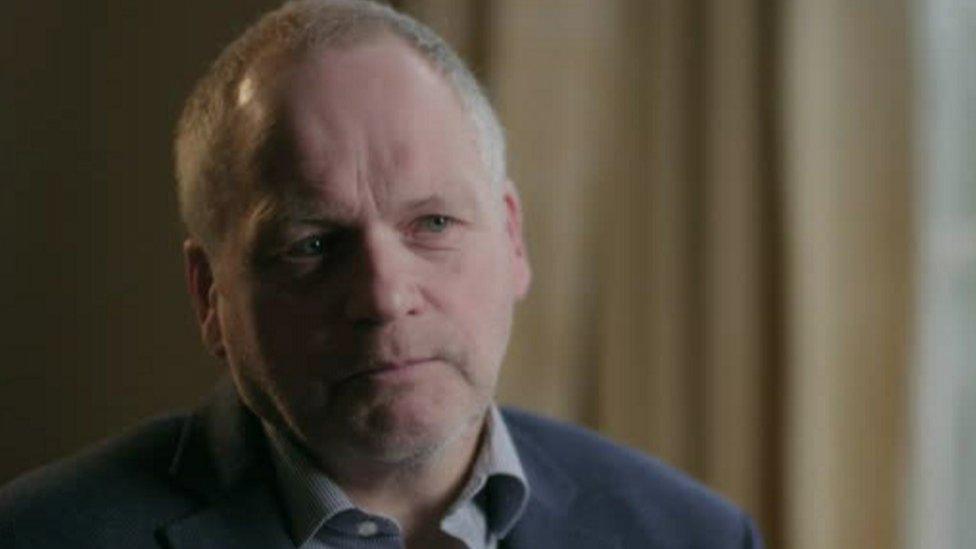
Trevor Ringland said that he was concerned that nationalism and republicanism was going down a 'narrow rhetoric'
"And now you have done that, it is going to be very hard to put it back in its box again."
Brexit moved Irish reunification into the political mainstream in Dublin.
However, former UK Foreign Secretary Sir Malcolm Rifkind disagreed with the assertion that unionists in Northern Ireland who lobbied for Brexit may have accelerated the likelihood of a united Ireland.
"I don't think that is right," he said.
"Clearly, as part of the decision of people of the UK as a whole to leave the European Union, one of the challenges, only one, is this question of the Northern Irish and Republic of Ireland border and that is a challenge.
"It is a problem, but it is not one that is unanswerable."
He added: "Our primary duty and obligation is to the people of Northern Ireland and while we have excellent relations with the Irish Republic and want to maintain that and improve that even further, it cannot be at the expense of Northern Ireland's place within the United Kingdom."
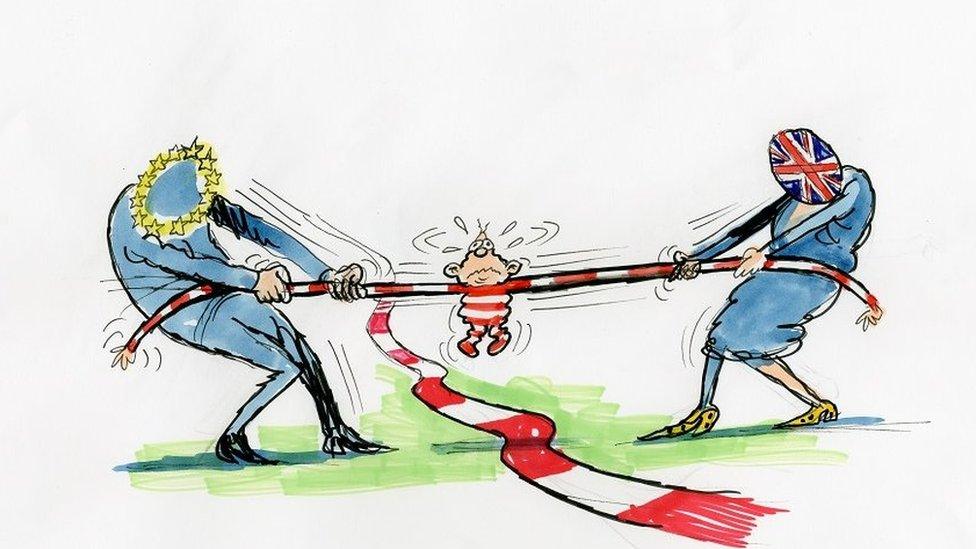
The divorce negotiations may eventually result in a solution that negates the likelihood of a hard border.
But for some nationalists, Brexit immediately shifted the "borders in the mind" and tilted their political gravity away from Stormont to Dublin.
"For a lot of nationalists, they're in the end game," said Brian Feeney.
"People know that Arlene Foster is the last unionist first minister and there will be a nationalist voting majority in 2023 or 2024.
"But, even if there wasn't a nationalist voting majority, which there will be, in combination with the Alliance Party, the Greens, People Before Profit and so on, the unionist majority has gone - and that is cause for resentment."
'Brexit changes everything'
This year marks the 20th anniversary of the Good Friday Agreement.
The Belfast-London-Dublin axis that facilitated that historic agreement now appears to be on a negative loop of frustration and resentment.
And the tone of some of the rhetoric appears to herald a new low in Anglo-Irish relations.
"It will never be as good as it was just a couple of years ago when we saw our president over to the UK and the Queen of England visit Ireland without fear," said Irish senator Neale Richmond, who is the European Affairs spokesperson for the Fine Gael party that leads the Irish government.
"Brexit changes everything. We are going to have to work very, very hard to repair and restore that relationship."
The psychology of any relationship breakdown can lead to denial, tears and anger before a compromise can be accommodated.
The Brexit divorce negotiations may yet become more unpredictable.
To borrow a phrase that usually signals the beginning of the end of a relationship.
It's not EU - it's Brexit.
BBC Spotlight's The Brexit Break-Up will be available to watch on BBC iPlayer.
- Published5 March 2018
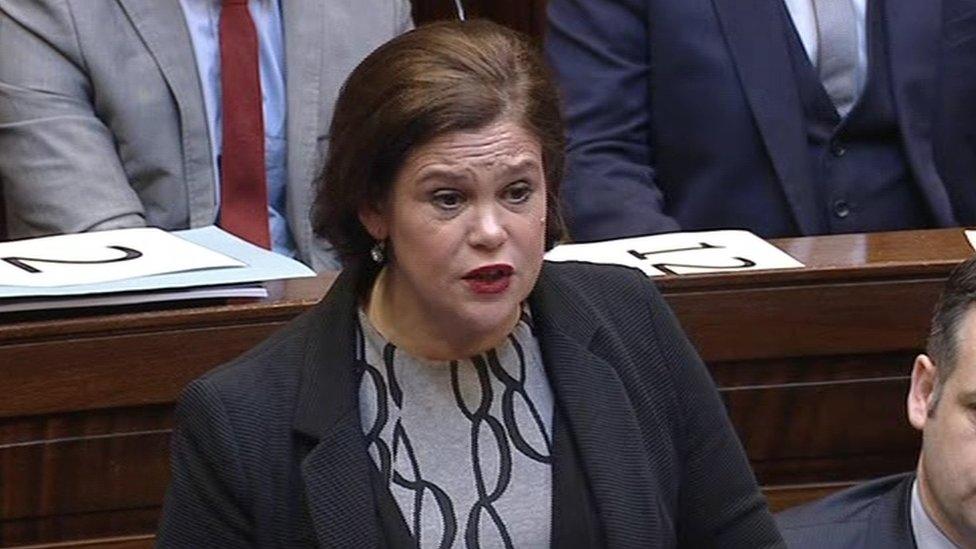
- Published30 December 2020
